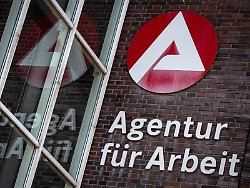So far, Germany's economy has come through the Corona crisis relatively well. Economists fear that this could change in view of the increasing numbers of infections. Then the crisis should also have a stronger impact on the labor market.
Economists fear the possible economic consequences of a second wave of the corona pandemic. "The economic upturn is likely to largely come to a standstill by spring," said the chief economist of the state-owned banking group KfW, Fritzi Köhler-Geib, in a dpa survey. "As a result, unemployment is likely to stagnate in the coming months or, if things go bad, increase significantly," she added.
According to Köhler-Geib, the employment risks remain high, especially in customer-oriented economic sectors. The autumn and winter months would be another endurance test, especially for the hotel and restaurant industry as well as parts of the retail trade and the cultural sector. A view that Marc Schattenberg, an economist at Deutsche Bank, shares: "The situation is stressful, especially for the service sector," he emphasized. Deutsche Bank is initially maintaining its forecast of an economic slump of 5.5 percent in the current year and growth of 4.5 percent in the coming year. "The third quarter should even surprise positively in terms of economic output," said Schattenberg.
However, downside risks can be seen for the fourth quarter, which could then drag on into the new year. The labor market is also affected – seasonal jobs, for example at Christmas markets, are particularly at risk, emphasized Schattenberg. Enzo Weber from the Institute for Employment Research in Nuremberg sees it similarly. "The labor market caught up in the summer, but the recovery here is far more sluggish and some areas, such as industry, continue to cut jobs."
The Allianz Group is even anticipating a decline of 6 percent in economic output this year and an increase of 3.5 percent next year. "The downside risks predominate," said Katharina Utermöhl from Allianz. "Unfortunately, however, it should be more uncomfortable for the German economy as early as autumn," she said. The expiry of supportive catch-up effects will make it unmistakably clear that the current economic recovery will not be a sure-fire success. The economy is "in a stop-and-go mode" due to the corona.
She firmly assumes that the state support measures that expire at the end of the year will be extended, said Utermöhl. Köhler-Geib advocated qualifying some of the many short-time workers and also unemployed people for professions that could suffer from a shortage of skilled workers in the future.
.
